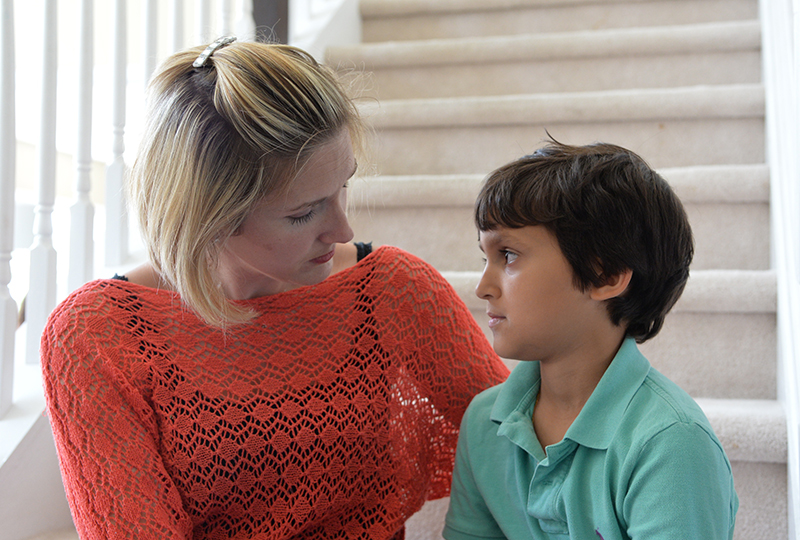We can’t stop the hurt, but here’s how we can help our kids cope with trying physical and emotional times.
Whether or not we like to admit it, our kids will get hurt through the course of their lives.
A lot.
As toddlers, there will be boo-boos, shots, scrapes, falls, bumps, bruises, separation anxiety, allergies, food intolerance, and lovies getting lost.
Once in school, not only do you have the physical hurts, but the emotional hurts get a little bigger: friends ignoring them, embarrassment over not knowing the answer in class, getting picked last in gym, and of course, literal growing pains.
I haven’t gotten to the teen years as a parent yet, but I can’t imagine handling hurt gets any easier once you add dating, hormones and driving to the mix.
Then there are the hurts that come from the world around them: divorce, deaths in the family and ills of this earth, from natural disasters to child poverty.
Whew – it’s tough to be a kid!
In the 12 years I’ve been a parent, we’ve been through our fair share of disasters, both of the child-sized variety and the earth-shaking variety. If there’s anything I’ve learned, it’s that my adult rationale is not very comforting to a hurting child.
Here are the top three pieces of advice I’ve compiled, both from experts and personal experience, to help your kids when they’re hurting:
1. Be honest.
As parents, we desperately try to protect our children from any hurt, yet we often grossly underestimate their capabilities. By not being honest with my kids when their grandpa was dying, I was actually creating more stress and tension in my daughter (who is already quick to internalize pain), instead of opening the door for her to feel free enough to come talk to me at any point about all she’s experiencing and how it relates to her life.
Of course, it’s important to be age-appropriate in what we reveal, but in an effort to protect our kids, we too often prevent them from discovering some of the most important qualities of life.
2. Be available.
This may seem simple and obvious, but it’s the most often overlooked, especially when we parents are also hurting.
As referenced in point No. 1, the worst thing we can do is hide from our kids when they’re hurting. No, I take that back; the worst thing you can do is make them feel guilt and/or shame for the emotions they’re experiencing. But right after that, the worst thing you can do is to not be accessible to your kids.
As parents, we think we need to have all the answers.
You don’t.
Simply remember what your parents used to tell you when you were little: God gave you two ears and one mouth so you would listen twice as much as you speak. Just listen, or better yet, just sit in the same room next to each other and be still…and ready to offer a hug if needed.
3. Be willing to ask for help.
As much as we may like to think that we can fulfill every need of our child, that’s always not the case.
As our children grow, so do their needs, which means we probably can’t meet every single one on our own.
Be willing to ask others for help, whether that means meeting a practical need like having a meal brought to your house or an emotional one, like finding a family friend for your child to talk to if they don’t feel comfortable coming to you in the moment. My mentor said one of the greatest gifts she gave her daughter during her teen years was surrounding her with amazing older women that she could turn to during those difficult times.
Sometimes in an effort to be “SuperParent,” we miss out on being what our kids really need, the parent they’ve always known and loved. In times of hurting, kids don’t want different, they want what they already know. The more you can focus on reminding them of what they know is true, the more they will understand that tragedy is a part of life and they too can triumph over the pain.
Sami Cone is a blogger, radio host and tv correspondent mentoring others to live their dream life on less and pursue their passions. As a frugal expert, she is equally comfortable sharing advice on screen as she is offering practical money-saving tips and how-to advice on her blog, SamiCone.com. A published author of the book Raising Uncommon Kids and seminar speaker, she draws on her experiences as a writer, editor, university professor, performer, professional athlete, and pageant winner to help women realize their full potential in life. She’s proud to call Nashville home with her husband, Rick, and their daughter and son who are 19 months apart.
How have you walked your own children through a challenging time? Share your ideas with a reply below.

